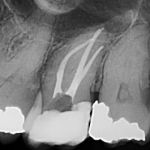How to Prevent Tooth Sensitivity with Proper Care
If you’ve ever bitten into an ice cream cone or taken a sip of hot coffee and suddenly felt a sharp, shooting pain in your teeth, you’re not alone. Tooth sensitivity is a common problem that affects millions of people worldwide. I’ve experienced it myself, and let me tell you, it’s not fun. The good news is that tooth sensitivity can be managed and even prevented with the right dental care. In this article, I’ll share some effective ways to protect your teeth and keep that discomfort at bay.
What Causes Tooth Sensitivity?
Before diving into how to prevent tooth sensitivity, it’s important to understand what causes it in the first place. Sensitivity occurs when the protective enamel on your teeth wears down, exposing the softer, sensitive layer beneath, called the dentin. This can happen for a variety of reasons, including aggressive brushing, gum recession, tooth decay, or even teeth grinding. It’s not just the extreme temperatures that cause discomfort; the exposure of the dentin to acidic foods, sugary drinks, and even brushing can trigger pain.
For me, it started when I used a hard-bristled toothbrush and brushed too aggressively. It wasn’t long before I started noticing that certain foods and drinks were causing sharp sensations in my teeth. Learning about tooth sensitivity helped me realize how important it was to adjust my brushing habits and make a few changes to my oral routine. The key is prevention—and the earlier you start taking care of your teeth, the better!
1. Brush with a Soft-Bristled Toothbrush
One of the simplest and most effective ways to prevent tooth sensitivity is to switch to a soft-bristled toothbrush. I used to use a medium-bristled brush thinking it would clean my teeth more thoroughly, but I soon learned that brushing too hard with stiff bristles can wear down enamel and cause the gums to recede. A soft-bristled toothbrush is gentle on your teeth and gums, yet still effective in removing plaque and food particles.
In addition to using a soft brush, I also recommend holding the toothbrush with a light grip and using gentle, circular motions when brushing. Avoid aggressive back-and-forth scrubbing, as it can cause unnecessary pressure on your teeth and gums. By changing these simple habits, I was able to significantly reduce the sensitivity I was experiencing.
2. Use Toothpaste Designed for Sensitive Teeth
Another great solution I found is using toothpaste specifically formulated for sensitive teeth. These types of toothpaste contain ingredients like potassium nitrate or strontium chloride, which help to block the pathways that lead to the nerves inside the teeth. After making the switch to a toothpaste designed for sensitive teeth, I noticed a significant decrease in the discomfort I used to feel when eating or drinking hot and cold foods.
If you’re dealing with sensitivity, I highly recommend trying a toothpaste that addresses this issue. You’ll want to make sure that the toothpaste you choose contains fluoride, as it helps strengthen the enamel and protect against cavities, another common cause of sensitivity.
3. Avoid Acidic Foods and Beverages
As much as I love a good citrus fruit or a tangy soda, I realized that acidic foods and beverages can exacerbate tooth sensitivity. When you consume highly acidic items, such as lemons, tomatoes, or sugary drinks, they can erode the enamel over time, leading to increased exposure of the dentin. This makes the teeth more vulnerable to sensitivity.
To prevent this, try to limit your intake of acidic foods and drinks. If you do indulge in something acidic, I suggest rinsing your mouth with water afterward to help neutralize the acids. This simple habit helped me protect my teeth without completely eliminating my favorite treats from my diet.
4. Use a Mouthguard if You Grind Your Teeth
If you’re someone who grinds your teeth at night, you’re at a higher risk for tooth sensitivity. I was unaware that I was grinding my teeth until I woke up one morning with sore jaws and teeth sensitivity. Teeth grinding, also known as bruxism, can wear down enamel, leading to sensitivity. It can also lead to cracked or fractured teeth, making it even more important to address this issue.
The solution? Wearing a custom mouthguard while you sleep. Your dentist can provide you with a mouthguard that will protect your teeth from the grinding pressure. I can personally attest to how much of a difference this has made for me. Since I started wearing a mouthguard, my tooth sensitivity has improved, and I no longer wake up with jaw pain.
5. Protect Your Gums
Healthy gums are just as important as healthy teeth when it comes to preventing tooth sensitivity. Gum recession is a common cause of sensitivity, as it exposes the roots of the teeth, which are more sensitive than the enamel. To protect your gums, make sure you’re brushing gently, flossing regularly, and visiting your dentist for routine checkups.
I also learned that using a toothpaste with fluoride can help to strengthen and protect the gums, while avoiding harsh mouthwashes that contain alcohol can prevent further irritation. Regular visits to your dentist are key in detecting any early signs of gum disease or recession, which can be addressed before they become serious problems.
6. Visit Your Dentist Regularly
Finally, one of the best ways to prevent tooth sensitivity is by visiting your dentist regularly. I’ve always made it a point to go for checkups twice a year, and these visits have been crucial in keeping my teeth and gums healthy. During these visits, my dentist checks for early signs of sensitivity, cavities, gum recession, and other issues that can lead to discomfort down the road.
If you’re already experiencing sensitivity, your dentist may recommend treatments like fluoride varnishes, sealants, or desensitizing treatments that can help protect your teeth. Regular professional cleanings are also essential for removing plaque and tartar that can contribute to sensitivity.
Conclusion
Tooth sensitivity is something I’ve personally dealt with, but with proper care, it’s possible to manage and even prevent it. By making a few simple adjustments—like switching to a soft-bristled toothbrush, using desensitizing toothpaste, and avoiding acidic foods—I’ve been able to significantly reduce the discomfort that once plagued me. Additionally, addressing habits like teeth grinding and gum protection, along with regular dental visits, will go a long way in ensuring long-term dental health.
If you’re dealing with tooth sensitivity, I encourage you to adopt these habits and visit your dentist to discuss any further treatments that might be necessary. Remember, taking small steps today can prevent larger issues tomorrow, so don’t wait to start protecting your smile!







 Dentist of Paoli5.0 (21 review)
Dentist of Paoli5.0 (21 review) Advanced Dental Artistry: Kenneth J. Yost, DMD, PA4.0 (121 review)
Advanced Dental Artistry: Kenneth J. Yost, DMD, PA4.0 (121 review) North Penn Endodontics Group4.0 (87 review)
North Penn Endodontics Group4.0 (87 review) Eastern Dental3.0 (336 review)
Eastern Dental3.0 (336 review) Roybal Comprehensive Health Center: Mendoza Celia DDS5.0 (1 review)
Roybal Comprehensive Health Center: Mendoza Celia DDS5.0 (1 review) Canton Kids Dentistry: Dr. Farshid Nia5.0 (2 review)
Canton Kids Dentistry: Dr. Farshid Nia5.0 (2 review) The Importance of Oral Health Education During Pregnancy for a Healthy Pregnancy
The Importance of Oral Health Education During Pregnancy for a Healthy Pregnancy Best Tips for Brushing Your Teeth Properly for Healthy Gums: Essential Techniques for Oral Health
Best Tips for Brushing Your Teeth Properly for Healthy Gums: Essential Techniques for Oral Health Why Skipping Dental Checkups Can Lead to Bigger Oral Health Problems
Why Skipping Dental Checkups Can Lead to Bigger Oral Health Problems Advantages of Porcelain Dental Restorations
Advantages of Porcelain Dental Restorations How Can Diabetes Cause Tooth and Gum Problems? Preventing and Managing Oral Health Issues
How Can Diabetes Cause Tooth and Gum Problems? Preventing and Managing Oral Health Issues Healthy Habits for Promoting Good Oral Health and Hygiene: Tips for a Healthy Smile
Healthy Habits for Promoting Good Oral Health and Hygiene: Tips for a Healthy Smile